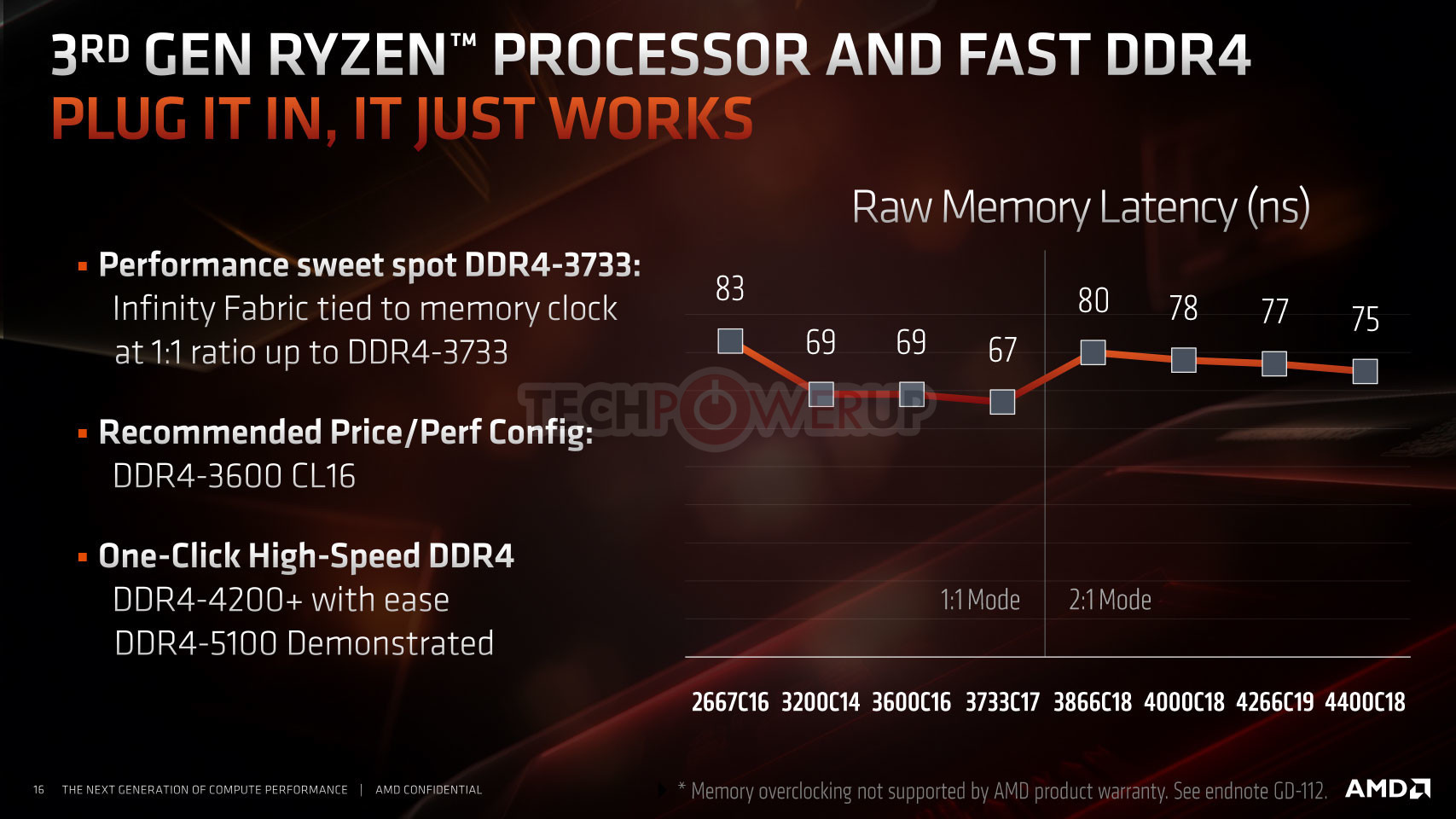- Joined
- May 8, 2018
- Messages
- 1,609 (0.62/day)
- Location
- London, UK
It just depends how you look at it.
My view on these small steps forward towards Intel ST performance are a constantly repeating confirmation that Intel really wasn't all that lazy all these years, they just made a substantial jump forward and perhaps even too much of it with Sandy Bridge. At some point there just isn't any low hanging fruit left and I think the last decade up until today and the near future confirms that for both AMD and Intel. AMD's Zen is however much better equipped to deal with that reality, being much more scalable and cost effective.
I guess this is due to the memory latency, if amd improves on that then it will have a killer on single thread performance. From what I saw so far, the best amd showed was the 67ns with 3733mhz cas 17.


It's really amazing what AMD have done here, they even told us what kind ddr4 to purchase.


 on top of that the x470 and x570 have same socket and are backwards compatible.
on top of that the x470 and x570 have same socket and are backwards compatible. 

